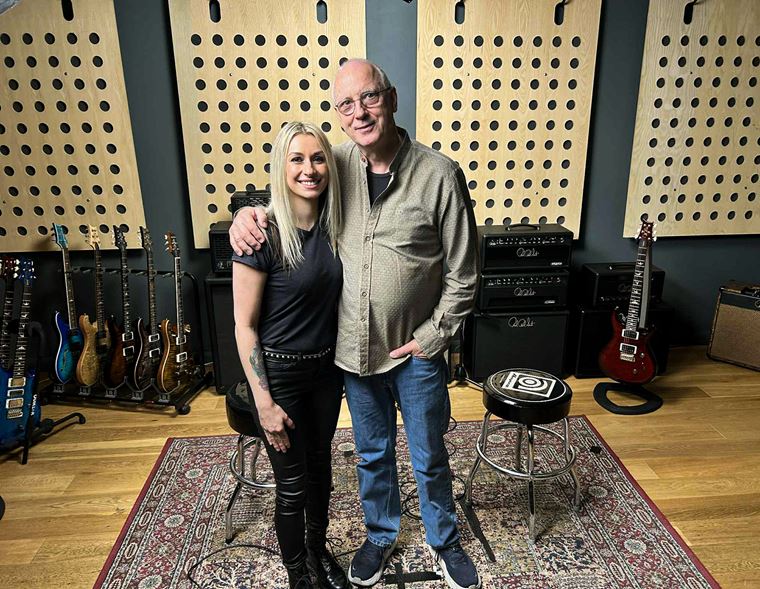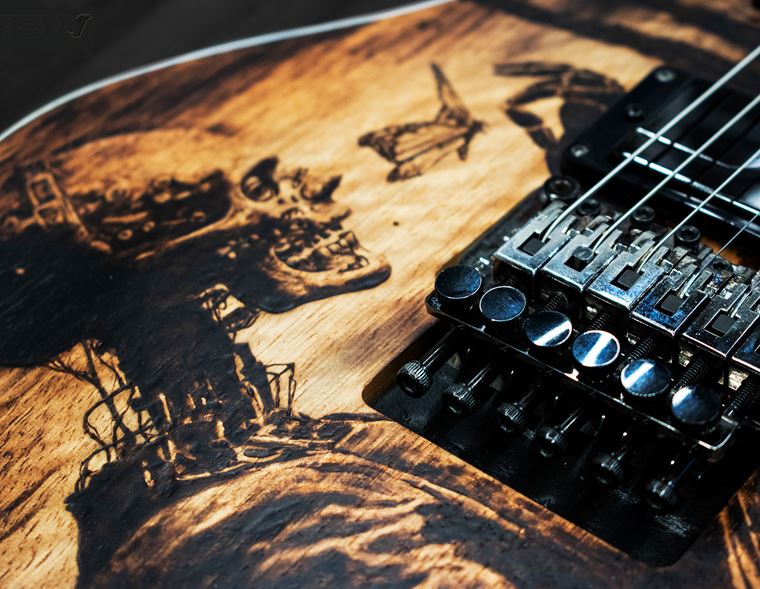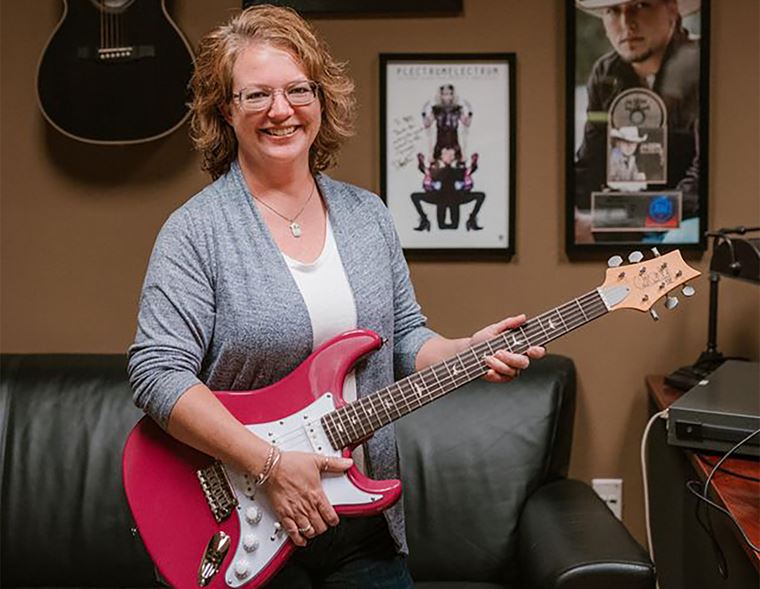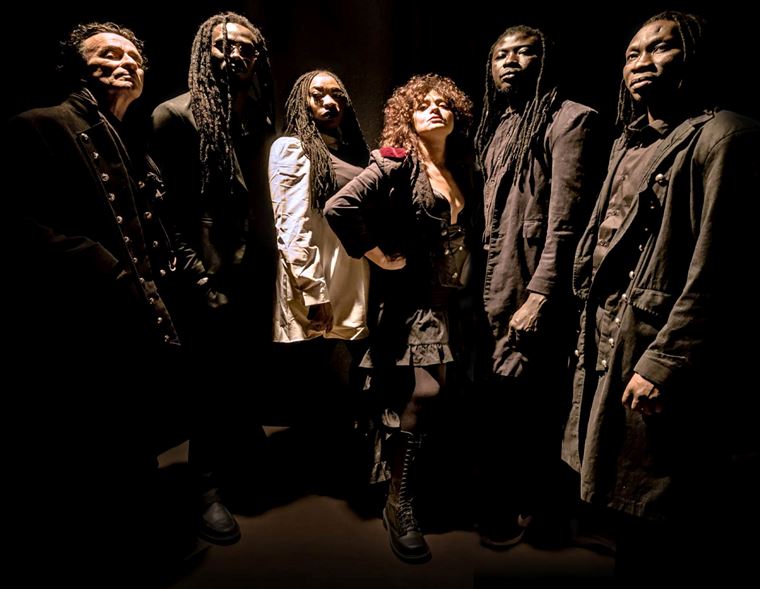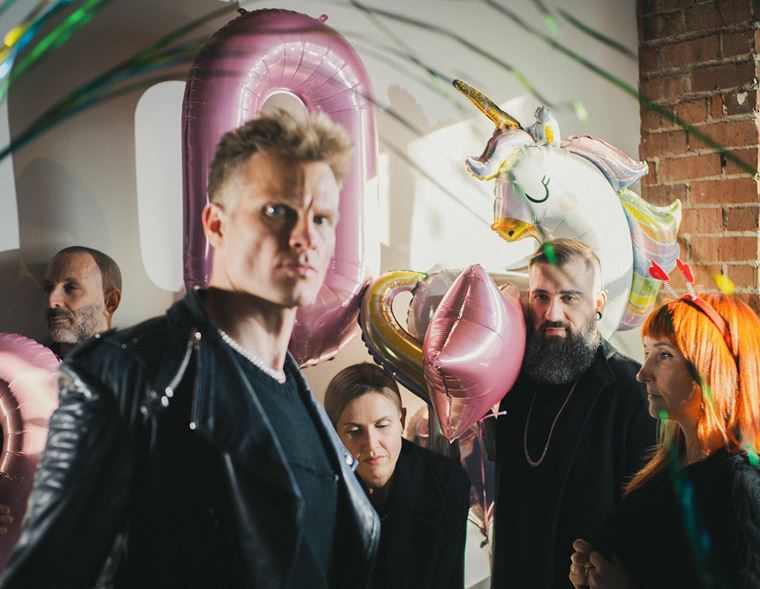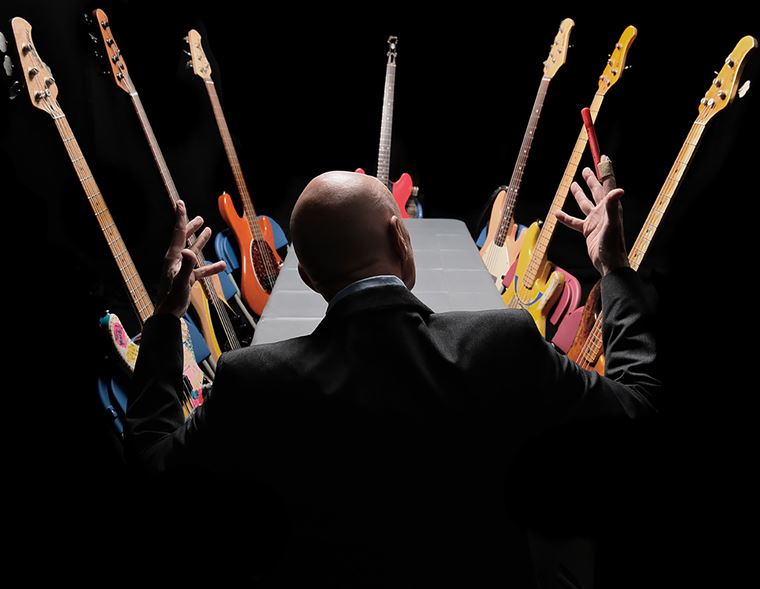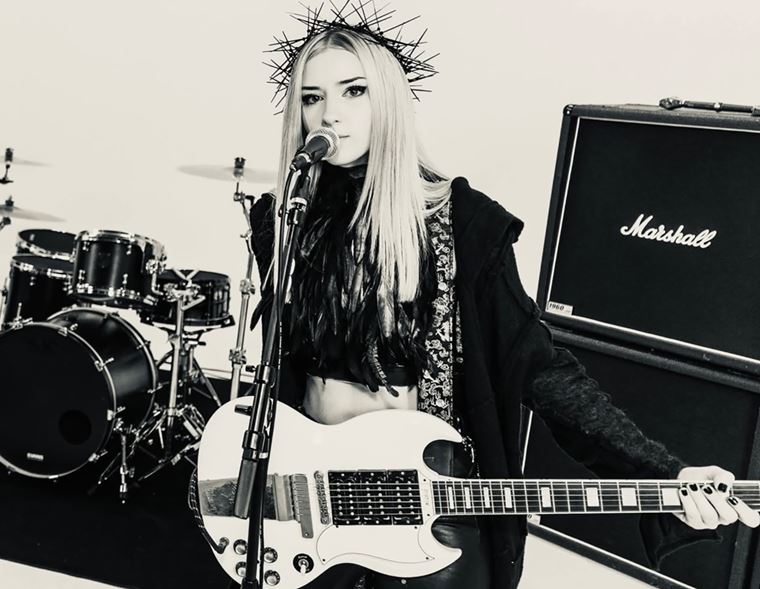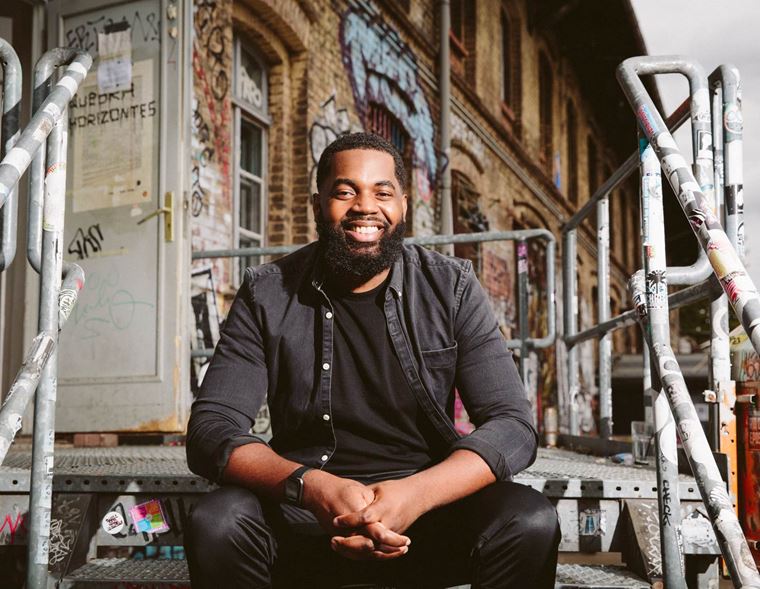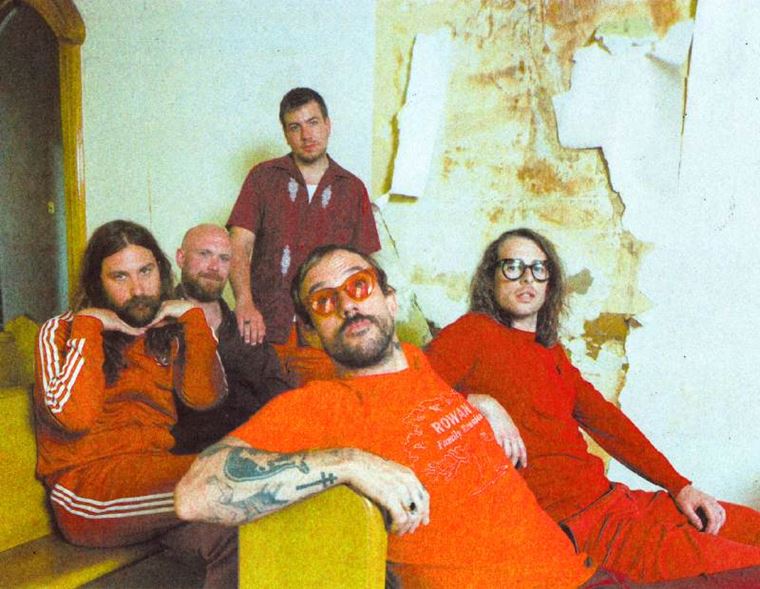LEPROUS: Ihsahn, Prog Metal and Quality 8-Strings
Leprous have been making increasingly large waves in the last few years. This melodic and left-of-centre band from Notodden, Norway, are part of a contemporary Prog scene that has as much in common with Modern Metal as they do with Alternative and even modern Ambient music. Their beautiful and complex soundscpaes have evolved over the last few years, moving away from overt aggression and finding a more contemplative space in which to create their progressive, dramatic sound.
The nucleus of Leprous is singer/keys player Einar Solberg and guitarist Tor Oddmund Suhrke. Together, they write much of the material that goes on to become Leprous songs. This month sees the release of their 6th album, Pitfalls, which a tour around Europe to support it. We had the good fortune of being able to trade emails with Tor, to find out just how the Leprous sound has changed, for the realities of being a touring musician, and the benefits of spending big when you want an 8 string guitar!
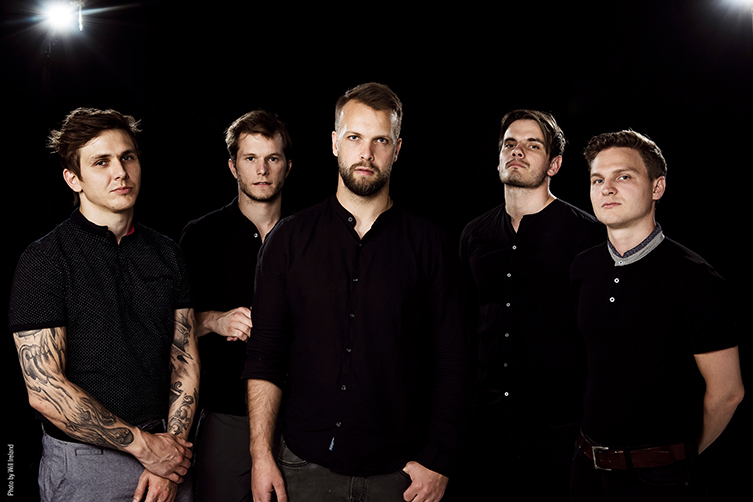
GG: Hi Tor! Thanks for talking to us! First off, how did you guys settle of the name Leprous? It seems somewhat at odds with the layered, considered sound that your band has? When I first heard of you, I wasn’t expecting you to sound so sophisticated!
Tor Oddmund Suhrke: Leprous was founded in 2001, when I was only 15 years old and had only started playing guitar. At that time we focused mainly on metal, and found Leprous to be a cool and suitable band name. As time has gone by our musical and lyrical themes have progressed a lot, while the name has just become a part of us, and today it means more to us than just the meaning of the word and doesn’t reflect much on the way we sound or the thematics in our songs.
GG: You are one of the founding members of the band: what were your formative influences?
TOS: We’re from a town called Notodden in Norway, which is known internationally for it’s metal scene, and also has Europe's biggest Blues Festival, so some of the influence in the beginning came from both listening to and talking directly with a lot of the great musicians that live there. In addition, I guess, we also got influenced by both contemporary bands at the time like, Opeth, Porcupine Tree, The Mars Volta, Pain of Salvation, and older bands like Judas Priest, Iron Maiden, etc. In the beginning we were a mix from a big variety of metal genres from Black Metal to Power Metal. After some years, we started to move more towards progressive rock/metal which after several years has lead us down the road we’re on today. I guess with our latest releases, we’ve moved further and further away from the standard metal genre by toning down the typical “metal” elements such as growling vocals and over-the-top distorted guitars, which has felt like a very natural evolution for us.
GG: Did your local Norwegian scene play a large part in Leprous’ early sound? Does ‘Norway’ itself play an influence in your work?
TOS: We’re from a town which had a great cultural and musical scene at the time we started playing, and we had easy access to rehearsal rooms, equipment and people with a lot of knowledge about how playing in a professional band works, and that absolutely gave us a boost and inspiration to start to play, and to keep it going. When it comes to “Norway” itself playing an influence in our work, I wouldn’t say that it has, if you compare it to a lot of other bands that use the old norse mythology in their music.
GG: Also, was it difficult to get out of the Norway scene and into a more ‘international’ set of circumstances? If so, how did you go about it?
TOS: I never really felt we’ve been “stuck” the Norwegian scene, besides the fact that we we’re a Norwegian band. One of the reasons for this is that we play a style of music that is a lot bigger outside of Norway, and ever since our first extensive tour in 2010, we’ve been building a lot more in the international market than in the Norwegian market. Leprous has always aimed high, and since we’ve been playing a kind of music that hasn’t been mainstream enough to be embraced by the mainstream masses, and not hard enough to be accepted in the more specific and closed sub-genres like Black Metal, etc., I guess you can say that the saying that “no prophet is accepted in his home town” fits to some extent for how Leprous has been building in Norway. That being said, what’s important to us is to make music we want, and not because someone else wants it. Then people are free to make up their own mind about it.
GG: Leprous are also ocassionally the backing band for Ihsahn (well-known ex-member of Emperor). Would you say it’s quite healthy to be able to go and tour with the same musicians but, between Leprous tours and Ihsahn tours, have entirely different goals?
TOS: Actually, we haven’t been Ihsahn’s backing band since 2014. We managed to make it work from 2009 to 2014, but had to end the cooperation when Leprous started to tour as extensively as we have done the last years. Some of our band members have continued to do session work for Ihsahn though, and we’re all still very good friends and still cooperate in different projects.
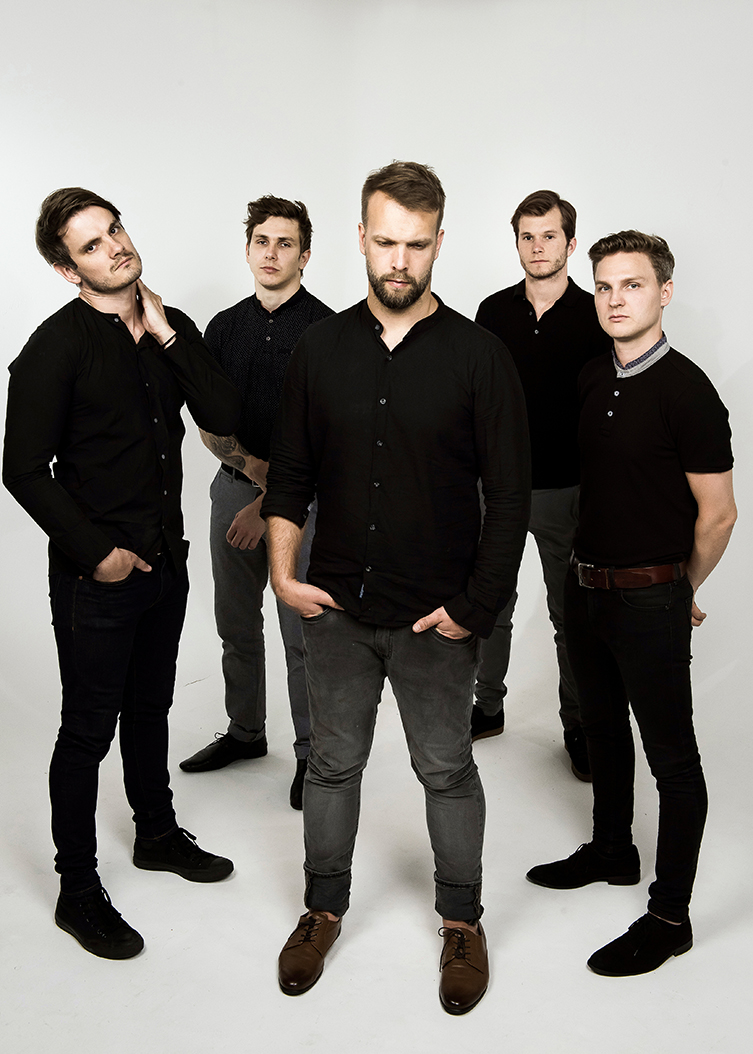
(photo by Will Ireland)
GG: Is touring the major source of income for modern Progressive Metal bands like Leprous?
TOS: I think touring is one of the main incomes to most bands today, especially for those not in the most mainstream genres. Leprous has always been a band that takes pride in investing a lot into giving the best possible live shows, so this fits us rather well. It’s also very rewarding to see that we’ve finally reached the point where we can start to live off the music, and that has a lot to do with our growing fanbase which is very enthusiastic.
GG: Your last album Malina and the new one, Pitfalls, do not have the harsh vocal style of before. Is this a natural progression for the band?
TOS: That’s right, this has just been a gradual and natural progression for us, and as mentioned we evolve our music to do what feels right for us, and not to please the opinions of others. We still perform songs with growling vocals and other “harder” elements live, so it’s not that we’ve taken a stand against it or anything, we just haven’t felt it has been natural to add this to our recent songwriting.
GG: Talking of vocals, do you see your primary job in the band as being supportive to Einar’s voice?
TOS: As a vocalist, my job is definitely to back up Einar’s main vocals, which has definitely become a signature to the Leprous sound, and is also an element that gives our sound consistency even though a lot of the other elements are evolving.
GG: Does Pitfalls have an overarching theme or narrative?
TOS: Pitfalls is not a traditional “concept” album, as in having a story line throughout, but the lyrical themes are based on struggles related to mental health issues. As Einar has been open about, he has been struggling with depression, and when the two of us has been writing the lyrics for Pitfalls, the fact that it should be relatable to these struggles has been in the back of our heads.
GG: Stylistically and thematically, what type of things to you return to again and again as a band?
TOS: I mean, we’ve never been the band that typically writes about the most happy and uplifting topics, although what might seem to be a very depressive portrait at first, might end up being both uplifting and feel healing when you dive into it and let it sink in. On Pitfalls, some of the more daring changes in our songwriting has been pushing these normal boundaries to some extent, and the album consists of some of the more uplifting songs we’ve made, even though it might not seem like that at first.
GG: The production on your records is incredible. Is this something you try to retain and recreate at live shows?
TOS: Thanks a lot! First of all, we’ve been working a lot together with David Castillo in the recording process in the studio, aiming to reach the production level we want, and the after touch done by Adam Noble in the mix has been amazing as well, so we’re all very happy with the result. Trying to meet the level of production in our live shows is definitely something we invest a lot in, and we can’t wait to get these new songs out on the road!
GG: We're looking forward to it too! You play a relatively unusual guitar. Could you talk to us about your Aristides 8 string?
TOS: Yes, I use an Aristides 080s, which is an 8-string guitar with fanned frets and custom made passive Bare Knuckle pickups. The fanned frets makes a lot of sense, especially on an 8-string, as this makes the length of each string more ideal for its purpose. The acoustics of the guitar, which comes from Aristides’ own developed composite material “Arium”, is the best I’ve ever encountered in an 8-string, and it brings out so many details of also the lower strings compared to any other 8-string guitar I’ve tried in the past. The pickups can be switched between humbuckers and single coils, which makes it very versatile in a live setting, and I use the coil split a lot. I also use an Aristides 020 as 6-string, and will try out an Aristides 060 sss on our upcoming tour.
GG: Did you seek out the 8-string guitar out of necessity or were you simply curious about its potential as an instrument?
TOS: The reason I started using 8-string guitars to begin with was I needed it to play the Ihsahn songs back when we were his backing band. Then when getting used to the extra possibilities this gave me in the lower register, it became something that we explored a lot in our last albums. Then after some years of using my first 8-string, I got in contact with Aristides, also through Ihsahn, and when I finally got to try them I was sold! What struck me was that details I had never heard while using my previous 8-string was very clear to me, and I realised I had to rehearse a lot more since all the mistakes I might have played in the past suddenly got exposed, haha!
GG: It's definitely a learning curve! What strings do you use? What about plectrums? What do you prefer?
TOS: I currently use Elixir Nanoweb coated strings with .010 - .052 gauge for my 6-strings, and .010 - .074 for my 8-strings. They sound great, and especially for live use on tour, they stay crisp for so much longer than many other strings I’ve tried in the past. For plectrums I use the Dunlop Jazz III, 1.14mm.
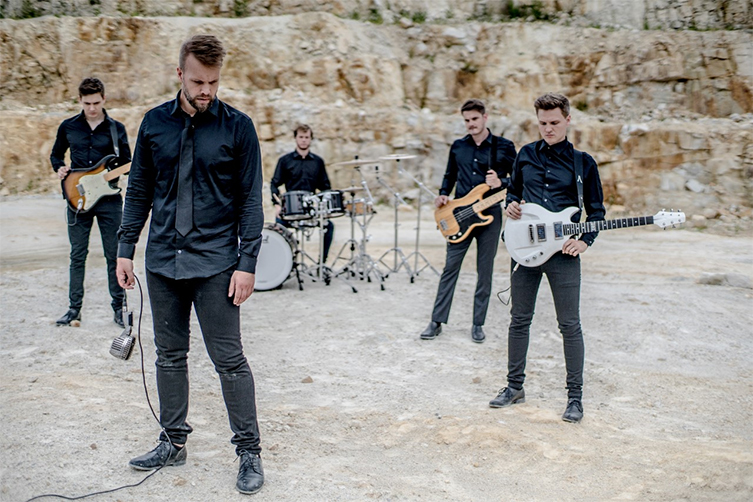
(Photo: Dariusz Szermanowicz)
GG: How about amps and FX? Do you use a traditional amp or have you ‘gone digital’? What’s at your feet, pedal/switch-wise?
TOS: As live amplification, we’ve used a Kemper Profiler since we released Malina in 2017, and it has been working very well, both on longer nightliner tours and on fly-in festivals. We were very sceptical about amp simulators in the past, but when we finally got to try the Kemper Profiler, we realised how great they can sound and went all in, so now we use them for both guitars and keys. In addition to the versatility it brings to the sound, it also makes sure our sound is a lot more consistent for fly-in shows, compared to having different amps supplied at different festivals or venues.
GG: Are there any current guitar players out there that you are a particular fan of?
TOS: To be honest, I’m a rather easy guy to inspire, and on the last European tours we’ve done, I got very inspired by all the great guitarists I toured with, that being Þórarinn Guðnason of “Agent Fresco”, Magnus Børmark of “22”, and our own Robin Ognedal, who has added a lot to my guitar sound and interest for equipment since he joined Leprous in 2017.
GG: How does songwriting work for Leprous? Do you all bring in parts to work on together?
TOS: All band members are welcome to take part in the songwriting in Leprous, and while we in the past often made songs together in the rehearsal room, now we have a system where we write more of the music by ourselves in our home studio, and then present our ideas to each other when the idea has become more than just a vague idea. Then when the time is right, we go through all the sketches that have been made, and agree upon which ones deserve the chance to be recorded and evaluated for the album. We also like to record a few extra songs, if we’re unsure of the potential they have, because a lot can happen from the sketch to the finished, recorded song, and it’s always good to have more to chose between rather than the opposite.
GG: Most definitely! If the ideas are there, use them! So, do you have a home studio?
TOS: My “home studio” is rather primitive, but I have an Apollo Twin sound card that I use both to record ideas and to track if we’re doing any reamplification on a record. As guitar amplification I use the Kemper Profiler, which works great for songwriting and to try out different effects which might be essential to some song ideas. On Pitfalls, I recorded everything in the studio, so didn’t track anything at home, but it was a great way to rehearse for the recording before entering the studio. The fact that the rig I need to do recordings is so minimal, means I can easily bring it with me, so I can also bring it on tour, to the studio or bring it to Einar’s cabin in the woods which we did during the songwriting for Pitfalls.
GG: Are you guys able to ‘do’ Leprous full-time or do you have other jobs outside of the band? What are Leprous’ pans for 2020?
TOS: We’ve finally reached a point where Leprous can be our full-time job, but I still chose to continue working a couple days a week in my other profession as a physical therapist. Our plan for 2020 will be to tour the world promoting Pitfalls, and we’re all looking so much forward to get these new songs out on the road and to visit all those places we’ve been before, and hopefully also some new territories we haven’t been yet.
GG: Finally, what advice do you have for players who may be have problems with playing 8 string guitars?
TOS: Haha, well I know it can be confusing with those extra two strings, but when you get used to them it’s not very different from playing a 6-string. I would also recommend not to over-use it, and to rather use the extra strings only when the compositions benefit from them. Very often you hear someone that just got an extra string to play, that they only play in this sphere, and that can get tiresome in the end. I would also recommend investing in a high-end 8-string guitar right away if your plan is to use it on a pro level and are willing to invest in it, because the quality of the sound can be almost discouraging if it’s too undefined, and I would think your skill level increases faster if you have a more inspiring sound. If you only want to have it for fun and to just try out how it feels like then a cheaper version is of course an option, but sound-wise, I still haven’t tried an 8-string that sounds better than the Aristides 080s.
GG: Awesome, Tor, thank you for all of your answers!
Pitfallby Leprous is released on 25th October via Inside Out Music. Leprous tour throughout November. Keep in touch with them via the Leprous official website. We'd like to thank Tor for taking part in this interview, and Simon Glacken for setting us up!
Thanks for reading,
Until next time.


